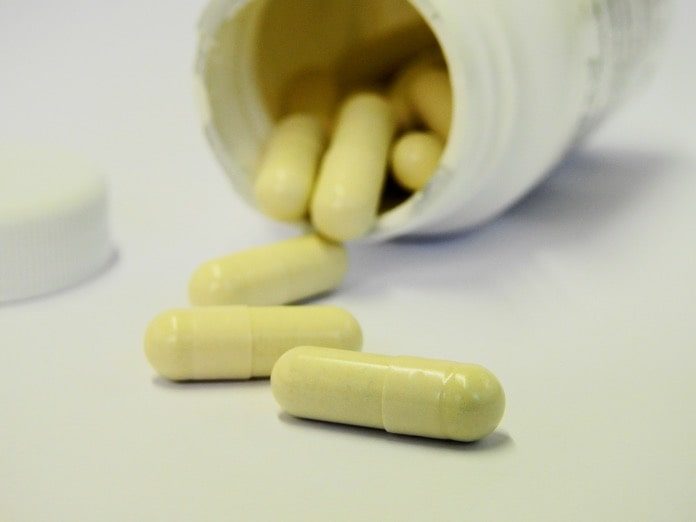Hyperbaric oxygen therapy is a treatment used in at least 14 different disorders. A significant risk of this treatment is oxygen toxicity which can lead to seizures. A recent clinical study explored the effects of ketogenic supplements on delaying oxygen-induced seizures in a preclinical study.
The major applications of hyperbaric oxygen treatment are in the treatment of diabetic wounds, carbon monoxide poisoning, decompression sickness, and gas embolisms. Recreational and military scuba divers are also at risk of oxygen toxicity because of their exposure to a high-pressure oxygen environment. Seizures induced by oxygen toxicity can be lethal, especially if it occurs under water. This serious side effect limits the use of hyperbaric oxygen therapy and other applications of high-pressure oxygen in divers.
Previous studies have found that food deprivation may delay oxygen-induced seizures
Previous studies performed in rats have demonstrated that oxygen-induced seizures can be delayed by food deprivation. Limiting the availability of glucose, which is the primary source of energy for brain cells, promotes the circulation of free fatty acids. The liver converts these free-floating fatty acids into ketone bodies which the brain can use as fuel.
The ketogenic diet has also been studied in animals as a treatment for epilepsy. In fact, children who do not respond to traditional anti-seizure medicine are put on a ketogenic diet to control their seizures. The concentration of circulating ketone bodies in the blood is correlated with an anti-seizure effect. The mechanism explaining this phenomenon is still unknown.
Preclinical study aims to confirm the results of previous studies
A study published in Physiological Reports aimed to confirm the results of previous studies on ketogenic supplements for delaying seizures. Experiments were run on 18-month old rats. The age of the rats correlates to a middle-aged human model. Groups of nine or ten rats received either water, a 10g/kg dose of a ketogenic ester, 5g/kg dose of a ketogenic ester, 5g/kg dose of a ketogenic ester along with a medium-chain triglyceride, or a ketogenic salt. The multi-chain triglycerides were added to achieve a higher level of ketone bodies in the blood.
All rats were allowed to eat regular rat chow consisting of 75% carbohydrates. After the treatment was administered, the rats were placed in the hyperbaric chamber until a seizure would occur. The researchers from the University of South Florida hypothesized that the ketogenic supplements causing the highest elevation of ketone bodies would be the most effective at delaying seizures.
Groups that received ketogenic supplements had delayed time to seizures
As expected, the time-to-seizure period was delayed in the three groups of rats receiving ketogenic supplements before entering the hyperbaric chamber. A significant difference was noted between the group of rats receiving the ketogenic supplements at 10g/kg and 5g/kg.
The higher dose of ketogenic supplements demonstrated greater anti-seizure activity compared with the control group. Although, a more significant delay was noticed in rats receiving the lower dose of supplements and multi-chain triglycerides the effect was not significantly greater than treatment with only a high dose of ketogenic supplements. Rats receiving ketone salts did not show a significant difference compared with the control group receiving water.
Ketogenic supplements were associated with lower severity of seizures
Blinded researchers also examined the severity of the seizures once they would occur. The rats receiving a high dose of ketogenic supplements showed a significantly lower severity of seizures compared with the control group. The other groups receiving the lower dose of supplements along with multi-chain triglycerides and the half dose of supplements alone did not demonstrate a significant decrease in severity scores.
In all groups of rats receiving ketogenic supplements, the blood levels of ketone bodies were significantly increased. Treatment with the high-dose ketogenic supplement resulted in the highest levels of circulating ketone bodies. There is a strong correlation between ketone body blood concentration and the delay in seizure occurrence.
This clinical study performed in rats investigated the effects of varying doses of ketogenic supplements and the use of multi-chain triglycerides on the time-to-seizure activity after exposure to high-pressure oxygen. Blood concentrations of ketone bodies were increased in all groups of rats receiving ketogenic supplements.
A significant increase in the delay to seizure activity occurred in rats receiving higher doses of ketogenic supplements. A lower seizure severity score was also noticed in rats receiving a high dose of ketogenic supplements. The application of this therapy on patients undergoing hyperbaric oxygen for treatment and in scuba divers using high-pressure oxygen requires further efficacy and safety studies.
Written by Jessica Caporuscio, PharmD
References:
- Ari, AP Koutnik, J DeBlasi, et al. Delaying latency to hyperbaric oxygen‐induced CNS oxygen toxicity seizures by combinations of exogenous ketone supplements. Physiol Rep. 2019
- Bove, AA. Recompression Therapy. Merck Manual Professional Version. https://www.merckmanuals.com/professional/injuries-poisoning/injury-during-diving-or-work-in-compressed-air/recompression-therapy



